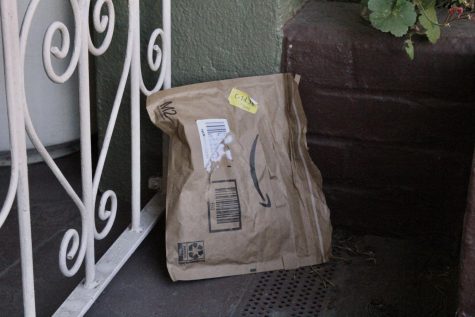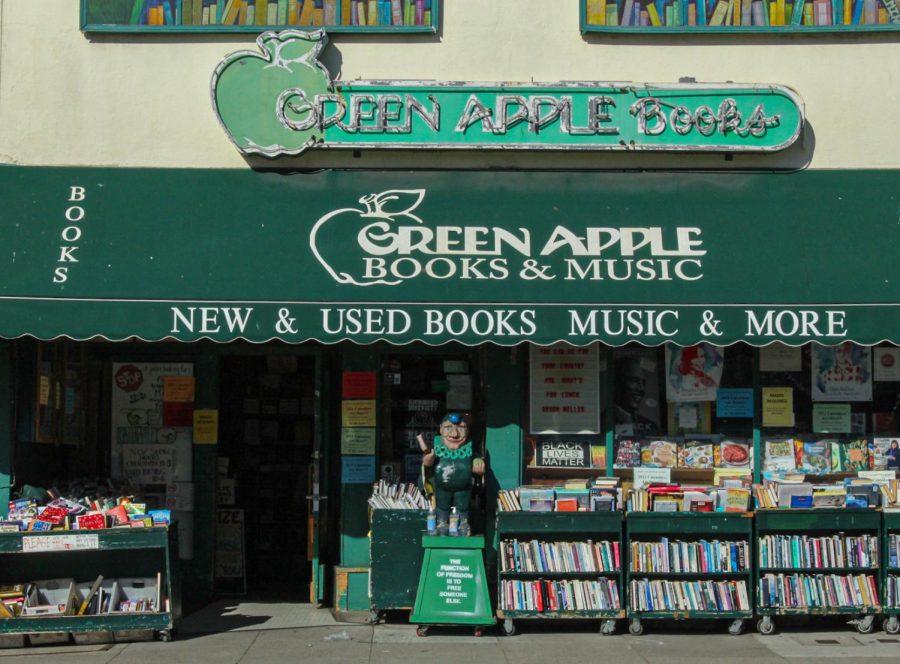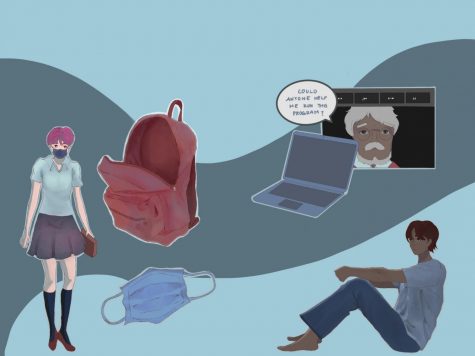Amazon doesn’t deserve your money, but your local communities do
Whether someone is receiving a package they ordered yesterday, asking Alexa to play a song, or enjoying a Prime member discount on groceries at Whole Foods, Amazon has an undeniably large presence in people’s lives. What started with selling books out of a garage has transformed into an international empire worth 1.6 trillion dollars and has made Jeff Bezos the richest person in the world.
Amazon dominates our lives because it’s incredibly convenient — it has almost everything you need at unbeatable low prices, and with Prime membership, every order arrives in one to two days. But this convenience comes at a price. To ensure fast delivery times, Amazon exploits its workers, and the company’s low prices harm local businesses and economies. By redirecting our money to local businesses and the communities they strengthen, we have the power to lessen Amazon’s impact, and we have a moral obligation to exercise that power.
To fulfill their promises of quick delivery time, Amazon mistreats its workers. The Chinese factories that produce Amazon’s Alexa devices use child labor, and their American factories have inhumane working conditions. A 2018 report by Reveal from the Center for Investigative Reporting found that Amazon’s rate of serious injuries in workers easily doubled the warehouse industry’s average. According to an investigation by The Atlantic, unsafe working conditions are paired with brutal quotas for workers: one employee was expected to scan an item every 11 seconds, or risk losing their job. Amazon’s expectations of constant productivity don’t stop there. When employees stop working to use the bathroom, they’re still expected to meet their quotas. This has led some workers to bring packages with them to scan on the toilet, while others develop urinary tract infections because they minimize their bathroom breaks. Amazon treats its workers inhumanely to maximize profit, and that is despicable.

Amazon also negatively impacts local businesses and economies. Amazon is notorious for gentrifying the cities they headquarter in, increasing homelessness and driving up rent prices. They also harm local businesses. Since Amazon has multiple sources of revenue, they can heavily discount goods and still make a profit, something most small businesses lack the financial resources to do. So, more people buy from Amazon, and less money is funneled towards local businesses, hurting their employees and business. A 2017 study by The Institute for Local Self-Reliance of over 850 small businesses in the United States found that Amazon negatively affected 90 percent of businesses surveyed, and many others have gone bankrupt.
Instead of shopping from Amazon, people who can afford to should support their local businesses, which enrich their communities by fostering human connection. Bookstores are spaces for people to learn, grow, and feel less alone. Staff members are often avid readers themselves, ready to strike up a conversation about a new book you’ve read or recommend one they think you’d like. They also feature work like zines, poetry, or art from people in the community. Spending an hour at a bookstore, lost in the pages of a new recommended book or one that you’ve picked up from a shelf, provides a sense of connection that Amazon cannot.
Local businesses like bookstores also provide a personalized customer experience to their community. Many local bookstores host book signings by the authors you love, hire local musicians to create ambiance, and showcase handwritten book reviews by staff members on the shelf. Nick Cuzzi, a bookseller at Green Apple Books on the Park in San Francisco, believes the experience of buying from a small bookstore is drastically different from Amazon. “We take [selling books] really seriously,” he said. “A lot of it is about curation. It’s about making decisions, like ‘What can we put on our shelves that reflects our community?’”
Supporting small businesses like Green Apple also ensures that they can continue providing for their communities. Amazon doesn’t need your money — it has more than enough. Local businesses and the people who work at them need it much more. Buying from small businesses supports real people’s aspirations and livelihoods. Your money could contribute to someone’s college education or put dinner on someone’s table that night. Cuzzi is grateful for such support. “Luckily, [San Francisco] is a reader city and one of the reasons we’ve been able to operate like we have is because of our community and [the] dedication that our community has to making sure that stores like this stay open,” Cuzzi said.
Some supporters of Amazon argue that Amazon Marketplace, a subsection of Amazon, helps small businesses reach more customers by allowing them to sell their products on Amazon’s website. The catch? Amazon is greedy. When an item is sold on Marketplace, Amazon takes roughly one third of the money, according to a July 2020 report by the Institute for Local Self-Reliance. In addition, small businesses have a high turnover rate on Marketplace because they find relative success at first, but eventually find the profit margin unsustainable. And more often than not, these sellers were forced to sell on Marketplace because the rise of ecommerce that Amazon has spearheaded has bankrupted their brick and mortar businesses. The loss of physical stores means cities lose pillars of community, culture, and human connection. It’s isolating to purchase fresh groceries on the internet instead of at a cash register. People want — and need — face-to-face human connection, which is increasingly harder to find.
However, not everyone has the budget to shop local: ethical labor practices and care put into products means local products are more expensive. In San Francisco, where the cost of living is among the highest in the world, many people cannot afford to spend 25 dollars on a book, so buying from Amazon may be the only realistic option. However, people who can afford to should choose ethics and community over saving money.
Amazon is not the only corporation guilty of perpetuating bad worker conditions, gentrifying cities, utilizing child labor, and bankrupting local businesses, but Amazon is the one with the largest influence in our lives. While one person boycotting Amazon won’t drastically change that influence, if enough people canceled their Prime subscription and stopped ordering from Amazon, and redirected that money to local businesses, Amazon’s power would be lessened and local economies strengthened. Boycotting Amazon is also a way to stand in solidarity with workers who are going on strike. With the United Food and Commercial Workers International Union calling on Congress to hold Amazon accountable and other organizations working to combat Amazon’s harms, an organized resistance is growing.
In a capitalist society, where you spend your money is an indicator of what you support. Amazon’s disorder of community, the economy, and humanity should not be supported. We should direct our money towards people who are passionate about their businesses and communities, instead of Amazon, which is only interested in profit. “[Amazon] doesn’t care about books, they never cared about books…when all that matters is [the profit that] you can get from it, we lose an element of our life,” Cuzzi said. So, the next time you buy anything — whether a book, clothing, art supplies, a record, or jewelry — find a local business in your neighborhood and spend the extra money knowing that it will be used to build a stronger community.










Steven L. • Dec 19, 2020 at 5:38 pm
This is a well written opinion essay with heart touching arguments. I want to say that successful businesses provide useful goods or services to consumers in the most effective and efficient way so they could make a profit. Having profits allows business continue to make investments to improve their products and services for and ultimately provide better customers experience. The consumers market should be open for all businesses regardless of its size. More competitions in the market place often benefit consumers by pressuring businesses to improve their goods and services. Don’t forget consumers behaviors, preferences, and tastes are constantly changing so successful businesses will need to change too. Remember that the winner for yesterday was Barnes & Noble, today is Amazon, tomorrow we don’t who will be that winner in providing the best consumer experience. Adaptation and change is a constant.